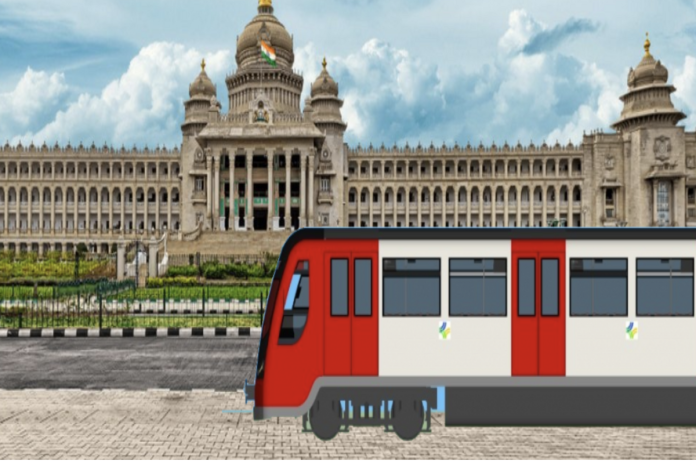In a significant development, South Western Railway (SWR) is set to embark on a transformative project that could reshape Bengaluru’s transportation landscape.
The railway authorities are planning to establish a 287-km-long circular rail network on the outskirts of the Karnataka capital, a move aimed at fortifying local train services, alleviating congestion in existing rail networks, and synergising with the Bengaluru Suburban Rail Project (BSRP) and Namma Metro.
SWR’s General Manager, Sanjeev Kishore, revealed that the Ministry of Railways has granted approval for the Final Location Survey (FLS) for the double-line circular rail network.
This ambitious project is designed to connect key points around Bengaluru, including Nidvanda, Doddaballapur, Devanahalli, Malur, Heelalige, Solur, and Nidvanda.
The primary objectives include enhancing Bengaluru’s rail capacity, easing bottlenecks in the existing railway network, and accommodating future demands.
The FLS, estimated at Rs 7.2 crore, will encompass a comprehensive survey, mapping of stations, yard plans, terminal facilities, and assessments of land requirements and civil structures such as bridges.
SWR emphasises that the proposed circular rail network will not only enhance rail capacity but also provide efficient and cost-effective train services, complementing both the suburban rail network and the city’s Metro rail system.
According to an SWR official, the network strategically connects significant town points like Devanahalli, in close proximity to Kempegowda International Airport, and Heelalige, situated near various industrial areas and satellite towns such as Doddaballapur and Hoskote.
The network aims to alleviate saturation on the existing rail network by operating Diesel-electric multiple unit or Mainline electric multiple unit (MEMU/DEMU) trains, thereby reducing the load on rail lines handling long-distance trains.
“Dedicated trains will be operational in both directions along the entire 287-km line,” the official stated, reports Times Of India.
As an illustrative example, he highlighted the proposal to connect Hejjala with Heelalige through a peripheral line to overcome congestion within the city limits.
Presently, the city experiences up to 110 per cent line capacity utilisation during peak hours, leading to delays and inefficiencies.
The circular rail network project comes at a crucial juncture when other major transit initiatives are underway in Bengaluru.
The Rail Infrastructure Development Company (Karnataka) Limited (KRIDE) is implementing a 148 km suburban rail network, and the Bangalore Metro Rail Corporation Limited (BMRCL) has ambitious plans to operationalise a 175km Namma Metro network by 2025, expanding it to 314 km by 2040.
If successfully implemented, the SWR’s circular rail network promises to be a game-changer, providing a seamless and efficient transportation solution for Bengaluru and its satellite towns.


